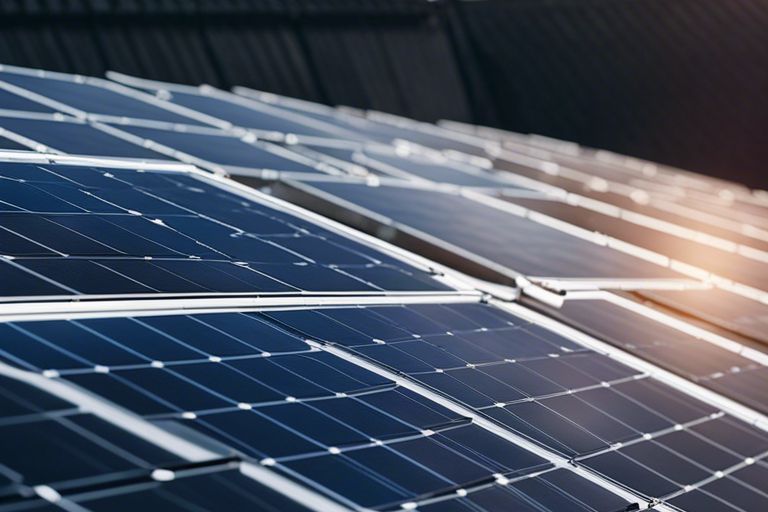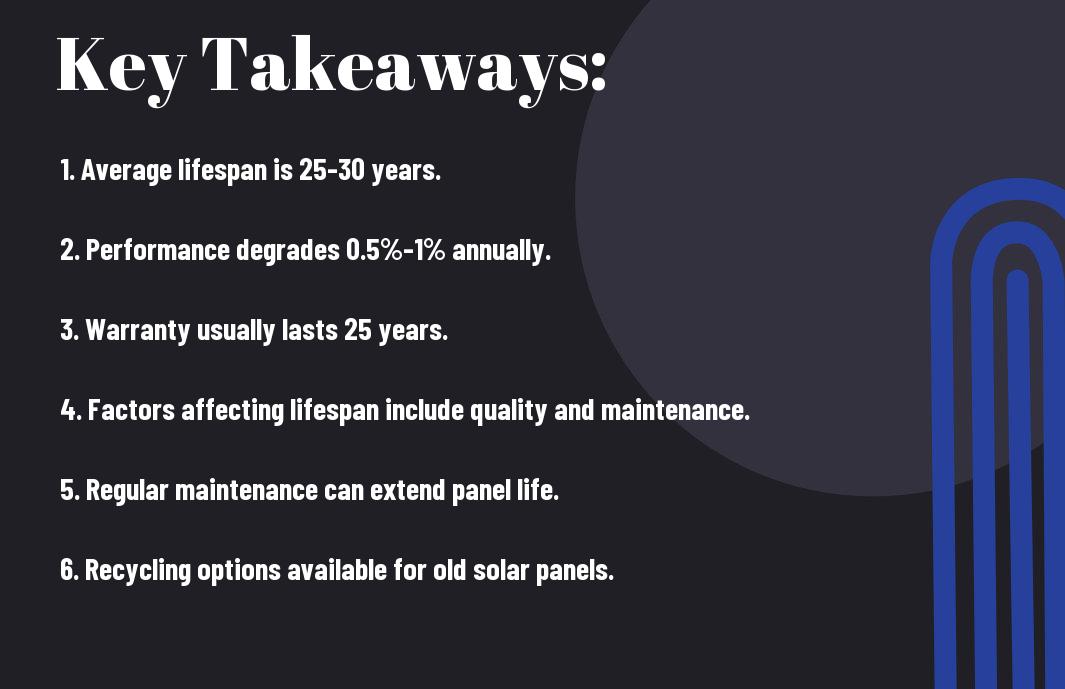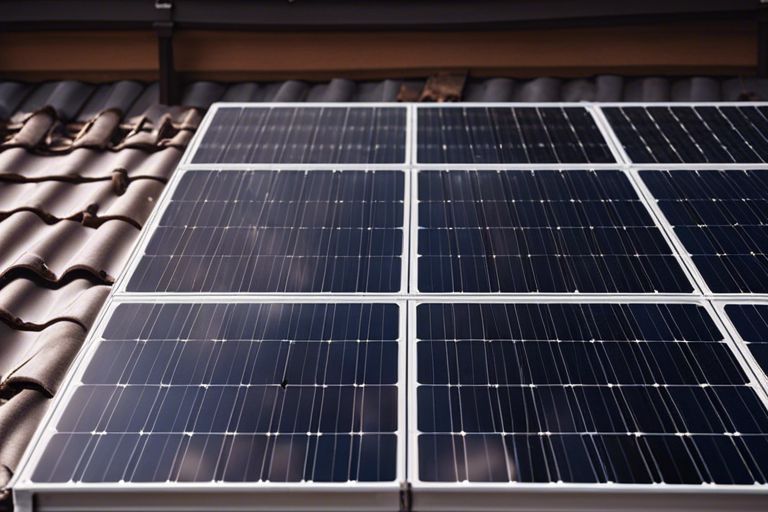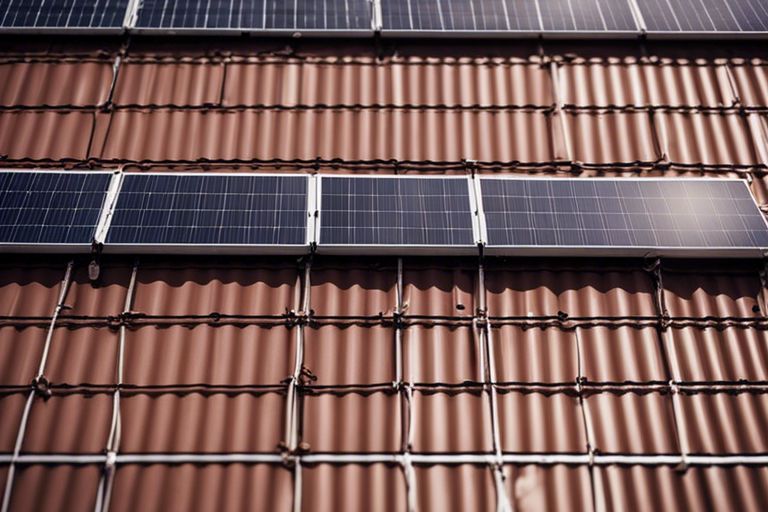With the rapid advancement of solar technology, understanding the lifespan of a solar panel is crucial in harnessing the sun’s energy effectively for your sustainable energy needs. Solar panels can last up to 25-30 years, with most manufacturers offering warranties ranging from 20 to 25 years. Factors such as maintenance, weather conditions, and quality of materials play key roles in determining the longevity of your solar panels. By investing in high-quality panels and proper maintenance, you can ensure that your solar panel system serves you efficiently for decades to come.
Key Takeaways:
- 25-30 years: The average lifespan of a solar panel is generally around 25 to 30 years.
- Degradation rate: Most solar panels degrade at a rate of about 0.5% per year, meaning they will still be operational after 25 years but at a slightly reduced capacity.
- Warranties: Solar panels typically come with warranties ranging from 20 to 25 years, highlighting the confidence manufacturers have in their longevity.
Definition of Solar Panel Lifespan
What is meant by lifespan
While talking about the lifespan of a solar panel, we refer to the duration for which the panel can function at its optimal capacity. This lifespan is typically measured by the number of years the panel can generate electricity efficiently.
Importance of knowing the lifespan
Lifespan is a crucial factor to consider when investing in solar panels for your energy needs. Understanding how long your panels are expected to last allows you to plan for future maintenance or replacements, ensuring the sustainable performance of your solar system over time.
Plus, by knowing the lifespan of your solar panels, you can make informed decisions about your energy consumption and savings. It helps you estimate the long-term benefits of your initial investment and weigh them against the potential costs of maintenance or upgrades in the future.
Factors Affecting Solar Panel Lifespan
Some factors can affect the lifespan of your solar panels. These factors include the quality of the panel, environmental conditions, and maintenance and installation practices.
Quality of the panel
- The quality of the solar panel plays a crucial role in determining its lifespan. High-quality panels manufactured with top-grade materials tend to last longer and perform better over time compared to lower-quality panels.
- Proper installation and regular maintenance can also contribute to the longevity of your solar panel system.
After considering these factors, you can ensure that your solar panels are of high quality, which will positively impact their lifespan.
Environmental factors
- Environmental factors such as temperature, humidity, and exposure to sunlight can affect the lifespan of your solar panels.
On top of these factors, the geographical location of your solar panel system can play a significant role in how long your panels will last. Perceiving the environmental conditions in your area can help you make informed decisions about your solar panel setup.
This aspect is crucial when considering the long-term performance and durability of your solar panel system.
Maintenance and installation
- Proper maintenance and installation of your solar panels are vital for ensuring their longevity.
Panel maintenance involves regular cleaning, inspection, and potential repairs to keep your system operating efficiently. Environmental factors also play a role in the maintenance of your solar panels.
Average Lifespan of Solar Panels
Industry standards
With advancements in technology and improved manufacturing processes, the average lifespan of solar panels is now around 25-30 years. This is based on industry standards and the expected performance degradation over time. Solar panels are designed to withstand various weather conditions and are made of durable materials that can last for decades.
Manufacturer warranties
To provide additional peace of mind, most solar panel manufacturers offer warranties that guarantee the performance of the panels for a certain number of years. These warranties typically range from 20 to 25 years and ensure that the panels will maintain a certain level of efficiency during that time frame. In case of any defects or issues, the manufacturer will replace or repair the panels at no extra cost to you.
Understanding the manufacturer warranties is vital when investing in solar panels. You should carefully review the terms and conditions of the warranty to know what is covered and for how long. It’s also recommended to choose a reputable manufacturer with a proven track record of honoring their warranties.
Real-world examples
For real-world examples, many solar panel installations from the 1980s are still functioning efficiently today, showcasing the longevity of these systems when properly maintained. By following regular maintenance schedules and ensuring that your panels are kept clean and in good condition, you can potentially extend their lifespan beyond the average of 25-30 years.
Industry studies have shown that solar panels degrade at a rate of around 0.5% per year, which means that even after the warranty period expires, your panels will still be generating a significant amount of clean energy for years to come.
Degradation Rates
For 1. Do solar panels actually last ~20 years in your … insight, it’s crucial to understand degradation rates. Degradation refers to the gradual loss of efficiency in solar panels over time. Any reputable solar panel manufacturer will specify the rate at which their panels degrade per year.
What is degradation
Any solar panel system will experience a decrease in efficiency over time due to various factors such as exposure to sunlight, weather conditions, and internal material degradation. Understanding the degradation rate of the panels you choose is crucial for estimating the long-term performance of your solar energy system.
Types of degradation
Plus, degradation in solar panels can be categorized into two main types: intrinsic and extrinsic. Intrinsic degradation occurs within the materials of the solar panel itself, such as corrosion of conductive materials or semiconductor defects. Extrinsic degradation, on the other hand, results from external factors like shading, soiling, or mechanical stress. Understanding these types of degradation can help you identify potential issues that may arise over time and take proactive measures to mitigate them.
| Intrinsic Degradation | Extrinsic Degradation |
|---|---|
| Corrosion of materials | Shading |
| Semiconductor defects | Soiling |
| Electric contact resistance | Mechanical stress |
| Degradation of encapsulant materials | |
| Light-induced degradation |
How to mitigate degradation
Rates of degradation can be managed through proper maintenance and care of your solar panel system. Regular cleaning, monitoring for shading issues, and ensuring proper installation can help mitigate degradation over time. Understanding the specific factors that contribute to degradation in your solar panels allows you to take proactive steps to preserve their efficiency and prolong their lifespan.
Understanding the degradation rates and types of degradation that impact your solar panels is crucial for maximizing their lifespan and performance. By staying informed and actively monitoring your system, you can ensure that your solar investment continues to generate clean energy efficiently for years to come.
Extending the Lifespan of Solar Panels
Regular cleaning and maintenance
Keep your solar panels well-maintained to ensure they function optimally throughout their lifespan. Regular cleaning not only improves efficiency but also prolongs the life of your panels. According to a study by GreenBiz, periodic maintenance can significantly extend the longevity of your solar panels. How long do solar panels last? Well, with proper care, you can push their lifespan beyond the estimated years.
Monitoring performance
On top of maintenance, monitoring the performance of your solar panels is crucial. By keeping track of their efficiency levels over time, you can identify potential issues early on and address them promptly. Monitoring performance allows you to maximize the output of your panels and catch any decline in efficiency before it becomes a bigger problem.
Monitoring can also help you track the overall health of your solar panel system. By analyzing performance data, you can spot patterns and make informed decisions about when to upgrade certain components to ensure the longevity of your system.
Upgrading components
Extending the lifespan of your solar panels also involves upgrading components when necessary. Technology in the solar industry evolves rapidly, and upgrading certain parts of your system can enhance its performance and longevity. For instance, replacing outdated inverters or adding energy storage capabilities can boost efficiency and ensure that your solar panels last longer.
Signs of Aging Solar Panels
Your How Long Do Solar Panels Actually Last? solar panels, like any other technology, will show signs of aging over time. It’s important to know what to look out for to ensure your system is operating efficiently. Here are some signs to watch for:
Visual signs
To visually inspect your solar panels for signs of aging, look for discoloration, cracks, or warping. These visual cues can indicate deteriorating materials or potential damage from weather exposure. Dust buildup can also impact the efficiency of your panels, so keeping them clean is imperative for optimal performance.
Performance indicators
Any decrease in the performance of your solar panels could be a sign of aging. This could manifest as a decrease in energy production compared to when the panels were first installed. Monitoring your system’s output regularly and comparing it to expected performance can help you identify any potential issues early on.
Performance indicators such as lower energy production, inconsistent power output, or frequent system errors can signal that your solar panels may be aging. If you notice these changes, it’s imperative to have a professional assess your system to address any underlying issues promptly. Regular maintenance and monitoring can help extend the lifespan of your solar panels and ensure they are operating at peak efficiency.
Diagnostic tests
Another way to determine the health of your solar panels is through diagnostic tests. These tests can provide more detailed insights into the performance of your system, including identifying specific areas of concern. Some common diagnostic tests include infrared imaging to detect overheating cells, IV curve tracing to assess the electrical characteristics of individual panels, and thermal imaging to identify potential hotspots.
signs It’s imperative to have a professional perform these diagnostic tests regularly to catch any issues early and prevent further deterioration. By staying proactive and addressing any signs of aging promptly, you can maximize the lifespan and performance of your solar panel system.
Summing up
On the whole, the lifespan of a solar panel can vary depending on the quality of the materials used, the manufacturer, and how well they are maintained. Generally, solar panels are designed to last for 25-30 years, but with proper care, they can even surpass this timeframe. As technology advances, we can expect even longer lifespans for solar panels in the future.
Q: What is the average lifespan of a solar panel?
A: The average lifespan of a solar panel is typically around 25-30 years. However, many solar panels can continue to produce electricity for even longer than that.
Q: What factors can affect the lifespan of a solar panel?
A: Several factors can impact the lifespan of a solar panel, including the quality of the materials used in its construction, the installation process, and how well it is maintained over time. Environmental factors such as extreme weather conditions can also play a role in determining how long a solar panel will last.
Q: Can solar panels be repaired or replaced if they stop working before the end of their lifespan?
A: Yes, solar panels can often be repaired if they stop working before the end of their expected lifespan. In some cases, individual components within the solar panel may need to be replaced or repaired. If the solar panel is under warranty, the manufacturer may cover the cost of repairs or replacement. If a solar panel is no longer functioning and cannot be repaired, it can be replaced with a new panel.







